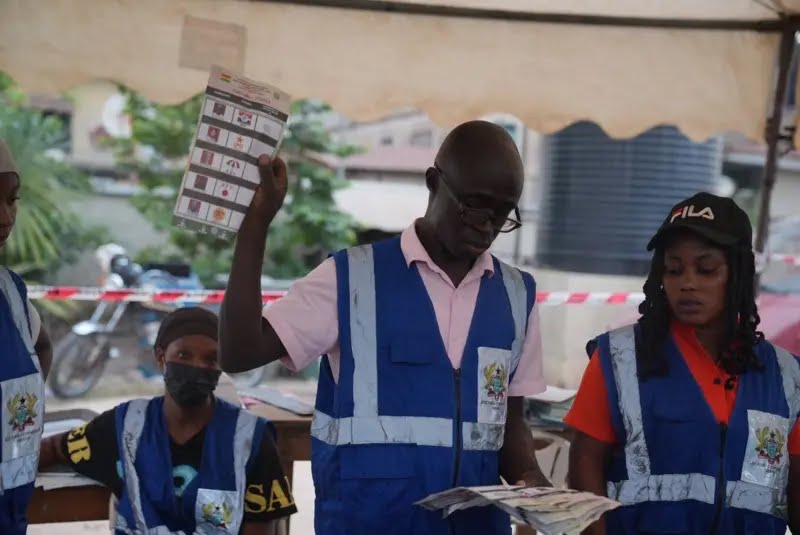
Ghana began counting votes on Saturday following a closely contested election, with Vice President Mahamudu Bawumia, representing the ruling New Patriotic Party (NPP), facing stiff competition from former President John Mahama of the opposition National Democratic Congress (NDC).
The election comes amid widespread public dissatisfaction over economic hardships, including a debt default, soaring inflation, and a $3 billion bailout from the International Monetary Fund (IMF).
Voters cast their ballots to elect a new president and parliament, as President Nana Akufo-Addo steps down after completing his two-term limit. The country’s struggling economy was a central issue throughout the campaign, with many citizens seeking leadership that could bring stability and growth.
Polling proceeded peacefully in most areas, though an isolated incident in Nyankpala, in the northern region, led to the death of one person and the arrest of four individuals, according to police and local media reports.
After voting closed at 5:00 PM GMT, election officials began counting ballots under the supervision of party representatives before forwarding results to collation centers. Preliminary outcomes are anticipated early Sunday, with the final presidential results expected by Tuesday.
“Everyone is complaining about the high cost of living. I want a leader who can bring meaningful change,” said Abdullah Mohammed, a student who voted in Accra’s Nima district.
Ghana, known for its political stability, has alternated power between the NPP and the NDC since transitioning to multi-party democracy in 1992. This election will determine whether that tradition continues amid mounting economic pressures.
Touting the slogan “Break the 8” — a reference to going past the usual two terms in power — the NPP hopes Bawumia can lead them to an unprecedented third term. But he struggled to break away from criticism of Akufo-Addo’s economic record.
“I think we have done a lot of work with our message to the people and the message has been well received,” Bawumia said after voting in his northern home Walewale.
A UK-educated economist and former central banker, he points to an economy turning a corner and the government’s continued plans for digitalisation to ease business, as well as free education and health programmes.
Economic frustrations
But though inflation slowed from more than 50 percent to around 23 percent, and other macro-economic indicators are stabilising, the economic pain was still a clear election issue.
Many Ghanaians still say they struggle with the cost of living, scarce jobs and a depreciated cedi currency.
Frustration over the economy has opened the way for a comeback challenge from Mahama, who was president from 2012 to 2017 but has since failed twice in presidential bids.
The NDC flag-bearer says he will “reset” Ghana and introduce a “24-hour economy”, extending industrial hours to create jobs, and also renegotiate parts of the IMF deal.
“Other elections have not been as obvious,” Mahama said voting in his northern hometown. “With this one, everybody can tell the direction because of the abysmal performance of the Akufo-Addo-Bawumia government.”
Some analysts gave him an edge because of voter dismay with NPP, but the former president faced criticism from those who remember financial woes and massive power cuts during his time in office.
Shoe saleswoman Esther Adobea said the economic situation hurt, but she was willing to give Bawumia a chance to make things better.
“I can see he can handle the country for us. Our economy is not good, but he can do better,” she said.
Both major candidates are from the north of the country — traditionally an NDC stronghold, but now more fragmented — making the region a key battleground.
While the economy was key, Ghana also faces an increasing risk of spillover in its northern regions from jihadist conflicts in Niger and Burkina Faso, where military juntas rule.
The spread of illegal gold mining also became an election issue. Akufo-Addo promised to stop illegal mining, but it has expanded, poisoning riverways and impacting cacao farmlands — a major source of export income.
AFP


